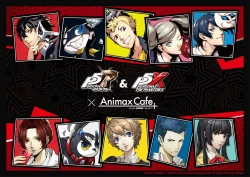
September 2, 2010
Tokyo Symphony Orchestra
Conductor Hubert Soudant says Japan’s orchestras must battle to survive
Originally published on metropolis.co.jp on September 2010

Courtesy of the Tokyo Symphony Orchestra
The life of an elite classical music conductor is about as glamorous as you might imagine: Hubert Soudant lives in Italy but travels to Japan several times a year to direct the TSO, on top of the many orchestras he’s invited to guest conduct worldwide.
But take away the black-tie concerts and glitzy after-parties, and there are the mundane tasks of planning the year’s concerts. When Metropolis joins Soudant at his hotel in Shinagawa, the Holland native is critiquing the marketing campaign for the TSO’s new Mozart series. Leading a Japanese orchestra, he says, presents unique challenges.
“Music is totally different in Japan than in Europe,” he explains. “A music director in Tokyo has the main number of important concerts in the year, but he doesn’t have a decisive grip on the whole thing. When I was the music director in Salzburg, I was pushing ideas, and they were realized.”
Soudant says that, apart from the Yomiuri and NHK orchestras, there is pressure on Japanese ensembles to remain profitable. This means that popular tastes dictate much of any given year’s programming. “In Europe, orchestras’ budgets are subsidized at least 90 percent by the state, whereas here we get only 10 percent. So musicians have to earn their keep, and they cannot be very critical. It’s a battle to survive, and if the organizer says, ‘I’d like to have the TSO play this or that,’ we have to follow.”
The result is a program heavily dependent on the greatest hits of the classical repertoire, with little time for contemporary composers—a situation markedly different from when Soudant was first invited to Japan in the ’80s. “If you look at the program of an entire year, there is very little modern music,” says the conductor, who is now in the sixth of his ten-year tenure as TSO music director. “In the Bubble, they could afford to do a lot of modern works because the sponsorship was there, but today there is no sponsorship.
“Thirty years ago, everyone was building big concert halls. Everyone had lots of money, and the conductors and soloists were the biggest. That has changed. Everything has to do with money. Why did Rembrandt go to Amsterdam to paint? Because the money was there. And so it is for every art form—you go where the possibilities are.”
The upside of the Darwinian struggle among Tokyo’s eight symphony orchestras is that it keeps them in fighting trim. “You see now in Europe with the poor economy, where do they save money? On the things you don’t need—music and art,” Soudant says. “As a result, all these institutions are now facing difficulties, because they never learned how to survive. But here it is a battle to survive, and only by the quantity and quality of its concerts can the TSO exist.”
Citing the past week as typical, Soudant says after premiering one of classical music’s most difficult operas, the TSO immediately began its Suntory Hall concert series. “The day after I began planning the next season, then on Saturday we do the Mozart matinee in the morning and then play the opera. On Sunday at 11 o’clock they play Schubert, and also in the afternoon. You cannot believe it!”
The result is a highly disciplined orchestra, but also one in which burnout is endemic. “I have to pay attention,” says Soudant, who despite not speaking Japanese works without a translator. “Sometimes they work so hard that I have to think about how not to tire them too much, so they still have the energy to give me a good concert. For instance, last Sunday they played opera and they were dead—but we had to rehearse Mozart. They trust me to do right by them because I have led this orchestra for many years.”
Despite its reputation of producing little more than clones, the conductor praises the Asian classical music machine that in recent decades has populated the world’s orchestras with Chinese, Japanese and Korean prodigies. “It’s wonderful when you have a little child and a method to learn, and he or she is very happy to do it,” says Soudant, himself a youthful French horn prodigy. “I think there is a bit of jealousy. I have nothing against this, because through this method the string sections of the Japanese orchestras are splendid. The best of these youngsters join orchestras and the super talents become soloists—and then we talk about personality and interpretation.”
When Soudant first arrived from Salzburg in 2004, his goal was to trace the history of classical music with one orchestra. Having conducted the TSO in composers from Mozart to Schoenberg, he’s already achieved his ambition with four years left in his tenure.
“I am a musician who likes music, and I will go where they want me,” he concludes. “I am not in a mood anymore to make a career—I have made my career. I want to feel happy to go to rehearsals, to do concerts, and produce excellent music. That is the only thing that interests me. I am not at all interested in becoming more famous. I have reached a certain level. Some people believe in me—others don’t. I don’t mind.”
Hubert Soudant conducts the TSO on Nov 27 at Suntory Hall and Nov 28 at Muza Kawasaki. Both concerts feature pianist Dang Thai Son performing works by Chopin and Bruckner. For a complete schedule see www.tokyosymphony.com.







